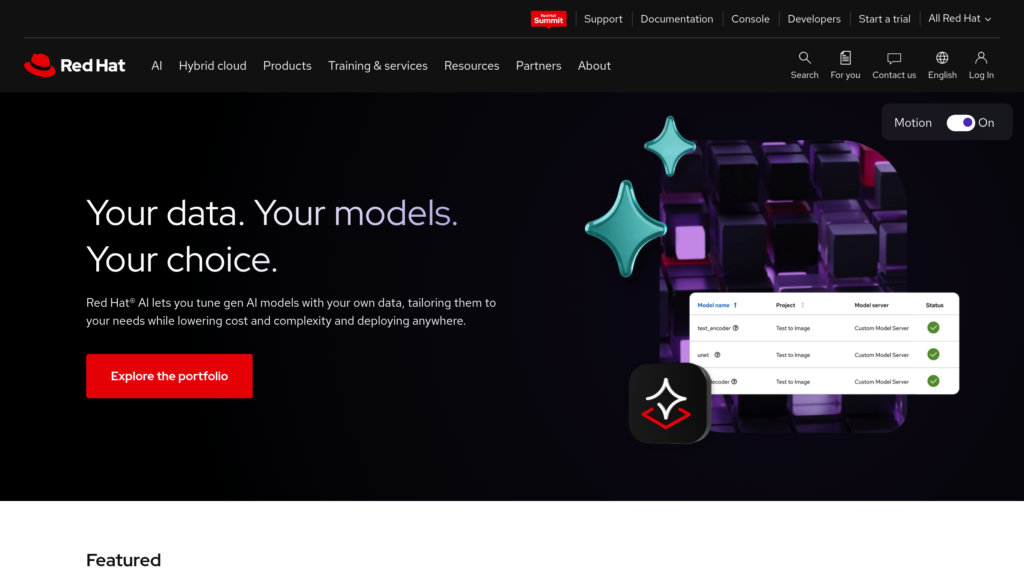Ansible
Open-source, agentless automation platform for IT configuration, deployment, and orchestration using simple YAML playbooks.
Product Overview
What is Ansible?
Ansible is a powerful open-source automation tool designed to simplify and streamline IT operations by automating configuration management, application deployment, provisioning, and orchestration tasks. It operates agentlessly, using SSH or WinRM to manage remote nodes, which reduces overhead and complexity. Ansible’s declarative language, based on human-readable YAML playbooks, allows users to define desired system states that Ansible enforces idempotently. The platform supports diverse environments including physical servers, cloud, network devices, and containers, making it highly scalable and flexible for enterprise automation needs.
Key Features
Agentless Architecture
Operates without installing agents on managed nodes, using SSH/WinRM for remote execution, simplifying setup and maintenance.
Declarative and Idempotent Playbooks
Uses YAML-based playbooks to define desired states, ensuring consistent system configuration with repeatable runs.
Extensive Platform and Cloud Support
Supports a wide range of operating systems, network devices, and cloud providers like AWS, Azure, and Google Cloud.
Modular and Extensible
Offers a rich ecosystem of modules, roles, and plugins, enabling customization and integration with existing workflows.
Automation Controller and Analytics
Provides a centralized UI and API for managing automation workflows, role-based access, and real-time analytics for scaling automation.
Event-Driven Automation
Enables automatic response to IT events with conditional rulebooks, enhancing operational efficiency and reducing manual intervention.
Use Cases
- Configuration Management : Maintain consistent system configurations across servers and devices, reducing drift and manual errors.
- Application Deployment : Automate deployment of applications and services across multiple environments to accelerate release cycles.
- Cloud Provisioning and Management : Automate provisioning, scaling, and management of cloud infrastructure across major cloud platforms.
- Network Automation : Simplify network device configuration, backups, and compliance enforcement across heterogeneous network environments.
- Continuous Integration and Delivery (CI/CD) : Integrate with CI/CD pipelines to automate build, test, and deployment workflows.
- Security Compliance and Patch Management : Enforce security policies and automate patching to maintain compliance and reduce vulnerabilities.
FAQs
Ansible Alternatives
Zeabur
Developer-centric PaaS enabling one-click deployment, automatic scaling, and integrated service management across all programming languages and frameworks.
CircleCI
A leading cloud-based CI/CD platform that automates building, testing, and deploying software across various environments with scalable, flexible workflows.
Qovery
DevOps automation platform that simplifies cloud infrastructure provisioning and application deployment with Kubernetes abstraction.
Resolve AI
Agentic AI platform automating incident detection, root cause analysis, and resolution in production environments to reduce downtime and on-call stress.
Bunnyshell
Platform that automates environment management and deployment workflows to accelerate software delivery while reducing cloud costs and operational overhead.
Convox
Unified platform for deploying, scaling, and managing cloud applications with streamlined DevOps workflows and robust security.
BuildKit
Advanced build toolkit for Docker that enables efficient, concurrent, and cache-optimized container image construction.
Dash0
OpenTelemetry-native observability platform that centralizes logs, metrics, and traces with transparent pricing and open standards.
Analytics of Ansible Website
🇺🇸 US: 14.38%
🇩🇪 DE: 12.62%
🇫🇷 FR: 7.18%
🇷🇺 RU: 6.6%
🇮🇳 IN: 2.63%
Others: 56.59%
